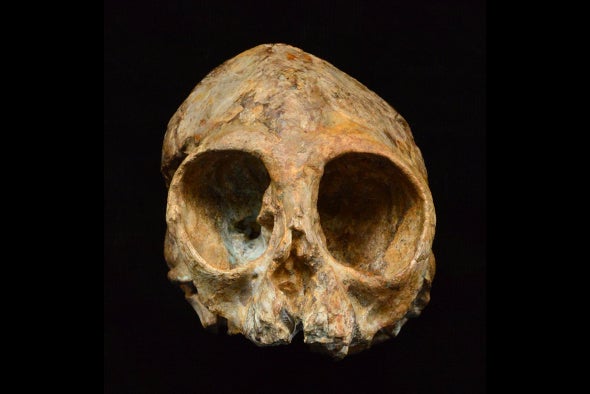- Nov 23, 2013
- 15,069
- 5,309
- Country
- Australia
- Gender
- Female
- Faith
- Atheist
- Marital Status
- Married
In a thread that has now closed, I was discussing with @Mark Quayle about evolution.
Specifically, since he had stated that he hadn't studied enough about evolution, he didn't feel that he was in a position to say it was right or wrong, but wanted to hear a convincing argument that evolution was correct before he would accept it.
As such, I proposed that I would make a series of statements about evolution, and Mark would say whether he agreed or disagreed with each statement. We managed to get to two statements that Mark agreed with before the thread was closed. I had presented a third statement, but Mark had not been able to post his reply when then thread was closed.
I sent him a message asking if he wished to continue that specific part of our discussion in a new thread, and he agreed to it, so I have started this thread so our discussion on the different statements about evolution can continue. I would like to keep this thread confined to a discussion about the statements I present and not a general thread about the arguments for and against evolution.
As a refresher, these are the previous statements, and Mark's responses to them:
These two statements I presented, and Mark agreed with them both. I presented my third statement, but as I said, the thread was closed before Mark could answer. I shall present my third statement again:
You have agreed that in a population of animals, there are variations, and you have agreed that these variations have a genetic basis.
Statement 3: When individual animals in this population reproduce, the genes they have are passed on to their offspring. So, the offspring carries genes from both of its parents.
Do you agree with this?
Specifically, since he had stated that he hadn't studied enough about evolution, he didn't feel that he was in a position to say it was right or wrong, but wanted to hear a convincing argument that evolution was correct before he would accept it.
As such, I proposed that I would make a series of statements about evolution, and Mark would say whether he agreed or disagreed with each statement. We managed to get to two statements that Mark agreed with before the thread was closed. I had presented a third statement, but Mark had not been able to post his reply when then thread was closed.
I sent him a message asking if he wished to continue that specific part of our discussion in a new thread, and he agreed to it, so I have started this thread so our discussion on the different statements about evolution can continue. I would like to keep this thread confined to a discussion about the statements I present and not a general thread about the arguments for and against evolution.
As a refresher, these are the previous statements, and Mark's responses to them:
Original postKylie said:I'll make a statement, and you tell me if you agree with it or disagree with it, okay? Once you give me an answer, I'll provide another statement, and we'll go through them one by one.
Statement 1: In a population of animals, each animal is going to have slightly different traits compared to the others. (For example, one animal might have slightly greater stamina, or an immune system that is better at fighting off infection, or poorer eye sight, that kind of thing.)
Do you agree with that?
Original PostMark Quayle said:Of course
Original PostKylie said:Okay, so you've agreed that there are variations among the animals in a population.
Now, Statement 2: The different traits that each animal has are determined, at least in part, by genetics. For example, if an individual has slightly better eyesight than average, this is a result of that individual's genes. Likewise, a certain combinations of genes could leave an individual vulnerable to some types of illness.
Do you agree with that?
Original PostMark Quayle said:Of course.
These two statements I presented, and Mark agreed with them both. I presented my third statement, but as I said, the thread was closed before Mark could answer. I shall present my third statement again:
You have agreed that in a population of animals, there are variations, and you have agreed that these variations have a genetic basis.
Statement 3: When individual animals in this population reproduce, the genes they have are passed on to their offspring. So, the offspring carries genes from both of its parents.
Do you agree with this?


